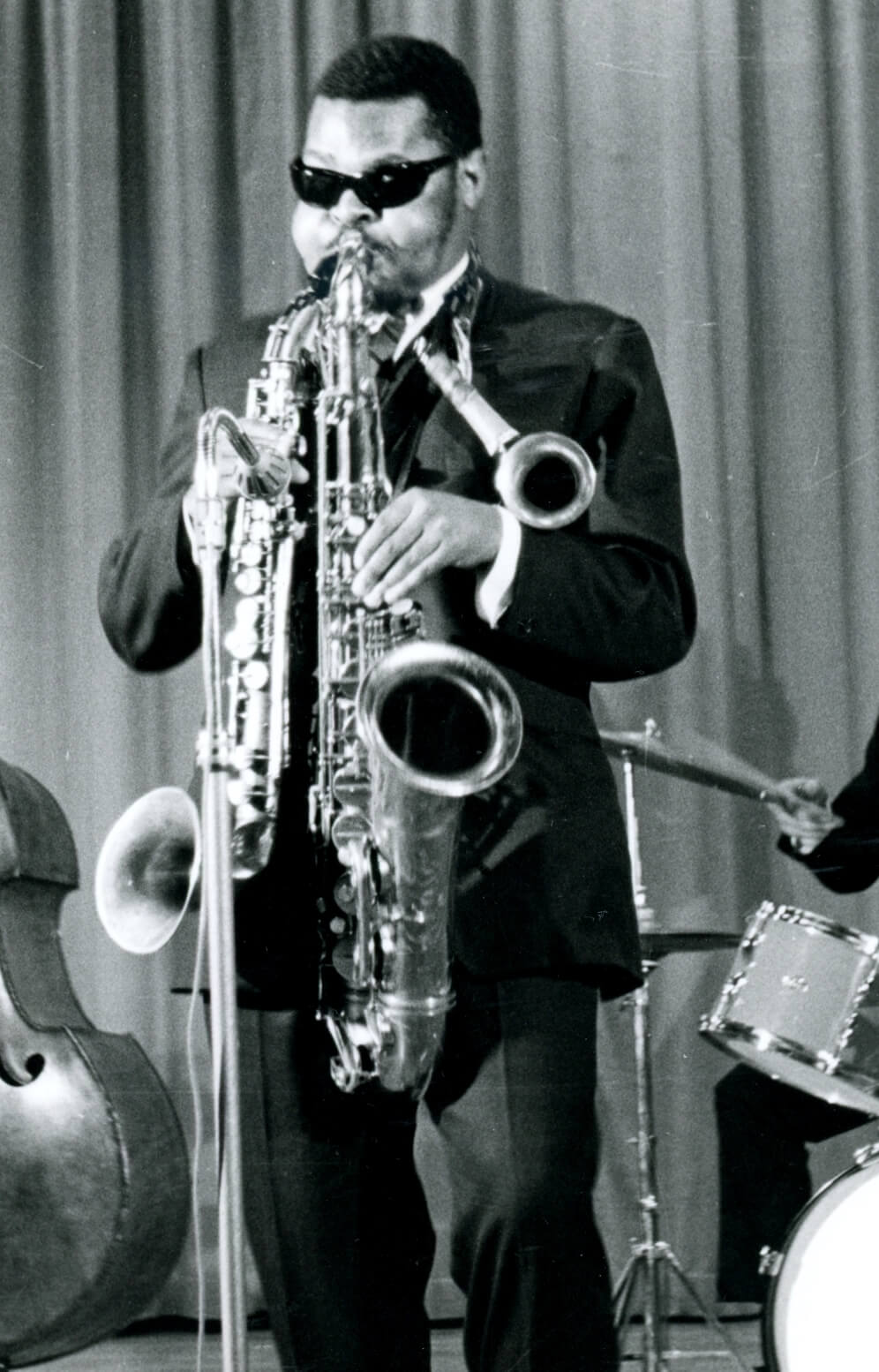Two movies about important Black individuals in American history came out this past winter, one looked at the political persecution of a prominent public figure, the other was a movie about, in an important way, the presence of jazz in American life. I’m talking, of course, about The United States vs. Billie Holiday and Judas And The Black Messiah, and it’s the latter that’s the jazz movie.
I don’t mean to be glib, or make light of this powerful film. Rather, I want to look at how jazz is used in the movie to help create the impact it ultimately has. Because the effect the movie had on me was triggered by hearing the excerpt of Rahsaan Roland Kirk’s “The Inflated Tear” on the soundtrack. That needle-drop comes in early, to frame the anguish of William O’Neal (Lakeith Stanfield), the Judas to Fred Hampton’s (Daniel Kaluuya) Black Messiah.
Even more, the music frames the whole movie. Director Shaka King chose the Kirk recording (from the classic Atlantic album of the same title), and then composer Mark Isham transcribed it for strings, slowing it down and stretching it out. That music is heard at the opening and is stitched throughout the film in the classic Wagnerian leitmotif concept. By the conclusion, it has been set once again in juxtaposition with Kirk’s original—”The Inflated Tear” begins with Kirk playing the opening idea and harmonies, solo, on three reed instruments in real time, something he was known for and a non-gimmicky, sincere expression of his profound musicality—and heard this way, its connection to the source is clear, as is its somber beauty and the weight of history that it helps the film bear.
There’s period music worked into Judas And The Black Messiah, something I subliminally expected (The Black Panthers, of which Hampton was a vital part, had their own band, a fascinating piece of musical and social history that Rickey Vincent covers in his book, Party Music: The Inside Story of the Black Panthers’ Band and How Black Power Transformed Soul Music. Music was essential to the Black political movements of the 1960s and 1970s, and you can read about that story in Listen, Whitey! The Sounds of Black Power, 1965-1975, by Pat Thomas, and listen to the companion 2-CD set of the same title from Light in the Attic records), and Kirk, as unique and compelling as he was, is not the first name that comes to mind in jazz.
Nor even does the expectation that jazz will ever be an important dramatic element in any movie; it’s just not how most people, even film directors, hear things. So the gorgeous and abrading scream and cry of Kirk’s reeds was startling. It softens you up and opens a trap door beneath; you fall into the depths of the story. When heard again, the riff has not only changed the movie but been changed by it, and the moment bookends the tragedy for which Kirk’s wailing has previously set the stage. Music expresses what words cannot, and Kirk’s work, via King and Isham, is a calling out from the soul.
That’s not the only jazz in the movie, either. There is a fleeting bit of Duke Ellington playing “Fleurette Africaine” on the piano, from the album Money Jungle he made for Blue Note, with Charles Mingus and Max Roach. It underlines a delicate, sunny, joyful moment that is, essentially, just ordinary. But that’s what Hampton was fighting for, the possibility that Blacks could live ordinary lives, unmolested by the power of the state, in the way that whites in America alway have. That could have been the linchpin in The United States vs. Billie Holiday, but instead that movie not only wastes the story of the great Lady Day, but also wastes all the great music that is inseparable from her life and legacy.
The main musical element in the movie is not pure music, but music as a plot point—will Holiday sing the anti-lynching song “Strange Fruit,” one of the few masterpieces of American political music, and will the FBI be able to stop her (the FBI is the element that binds the two movies together). The movie takes place in the 1940s and 1950s, roughly (the story telling is so confused that it’s hard to sort out any real time line), and the plot can barely handle the strained idea of the FBI trying to stop a song that had already been recorded and released, to acclaim, in 1939.
Despite the emphasis on “Strange Fruit,” the movie is really about the government’s war on drugs, via the story of Holiday. That means that by the time Andra Day (who is amazing as the singer) takes the stage to sing it, the song doesn’t really matter anymore. Chalk that up in part to how confusing and aimless the movie making is, but also to what comes off as director Lee Daniels’ contempt for jazz (which also comes through in the feeling that for him, Holiday is just an object upon whom he can toss his dramatic clichés).
The composer and pianist Kris Bowers has soundtrack credits for the movie, which, because it’s Billie Holiday, means that he was tasked with reworking and rearranging the standards that the singer made her own, like “All of Me” and “Then There Eyes.” As enviable as it may seem to be a film composers, most often the work boils down to giving a director what they ask for, no matter how dull or dumb that might be. And the sound of the music in the movie shows that Daniels wanted it pretty dull and dumb. Holiday sang classics and she made classics. With her phrasing and her incredible communication, she made the slightest novelties, like “What a Little Moonlight Can Do,” into songs you want to hear again and again. “All of Me” is one of the great standards, and Holiday’s singing in it has never been bettered. But that doesn’t mean it can’t be ruined, and that’s what happens in the movie.
Songs like “All of Me” work because they fit together words and their meaning, melodies, and harmonies so that they tell a story that feels better and hits deeper than just a narration. Hearing great songs again and again sets up expectations and satisfactions, hearing a line and waiting for that new chord to come in just so. What the movie does with this song, and others, is to rework the harmonies in incomprehensible ways; the arrangements make the songs both more complicated and weaker, the music thwarts expectations and doesn’t replace them with anything worthwhile. Gussying up older music with new instrumentation and beats, in order to appeal to contemporary listeners, is pretty standard, but replacing excellent harmonies with wan, unsatisfying ones is bizarre.
One of the pleasures of the standards is hearing those cadences go by and, crucially, hearing how they move the music forward. But what The United States vs Billie Holiday does is make the music flighty, irrelevant, irritating. The FBI never did as much damage to Billie Holiday as Lee Daniels now has.
Author
-

George Grella wrote the book on Miles Davis’ Bitches Brew. He write other stuff too. killyridols.substack.com/
View all posts
George Grella wrote the book on Miles Davis’ Bitches Brew. He write other stuff too. killyridols.substack.com/










